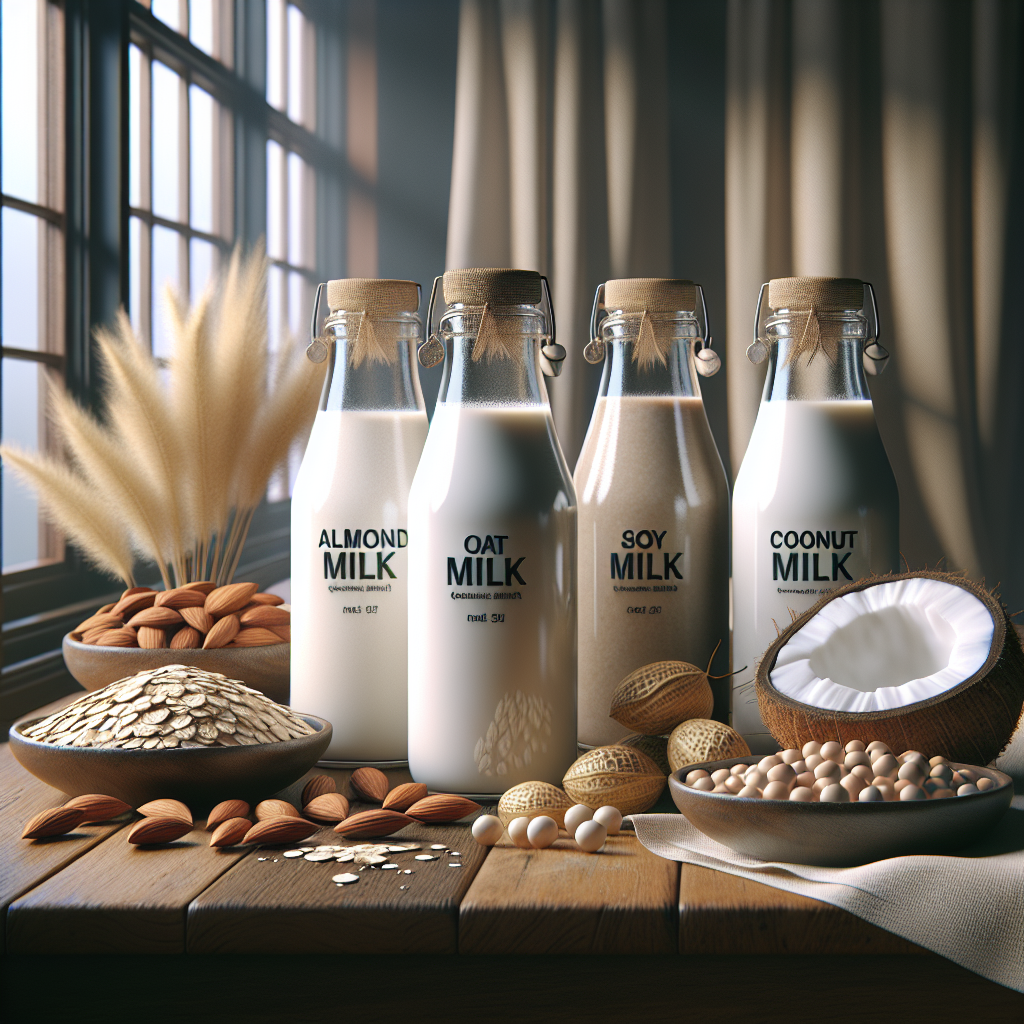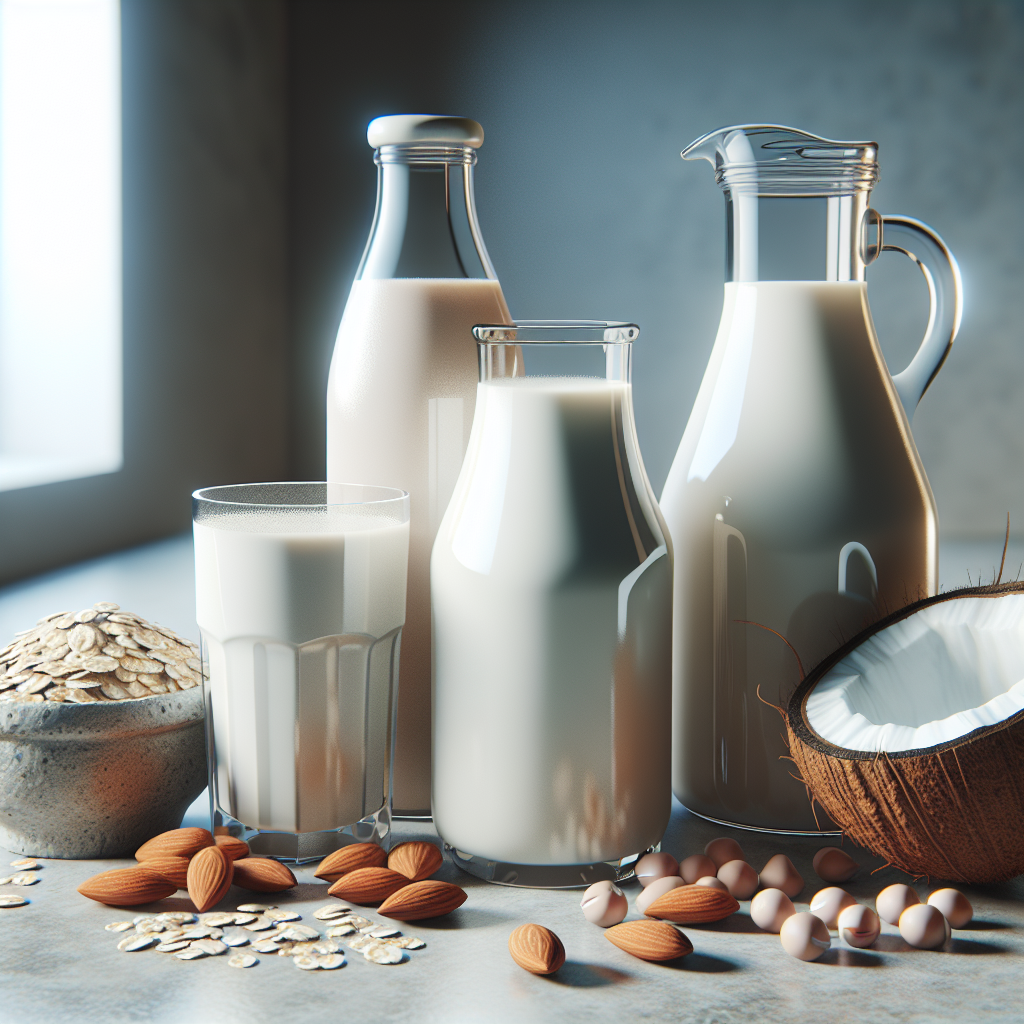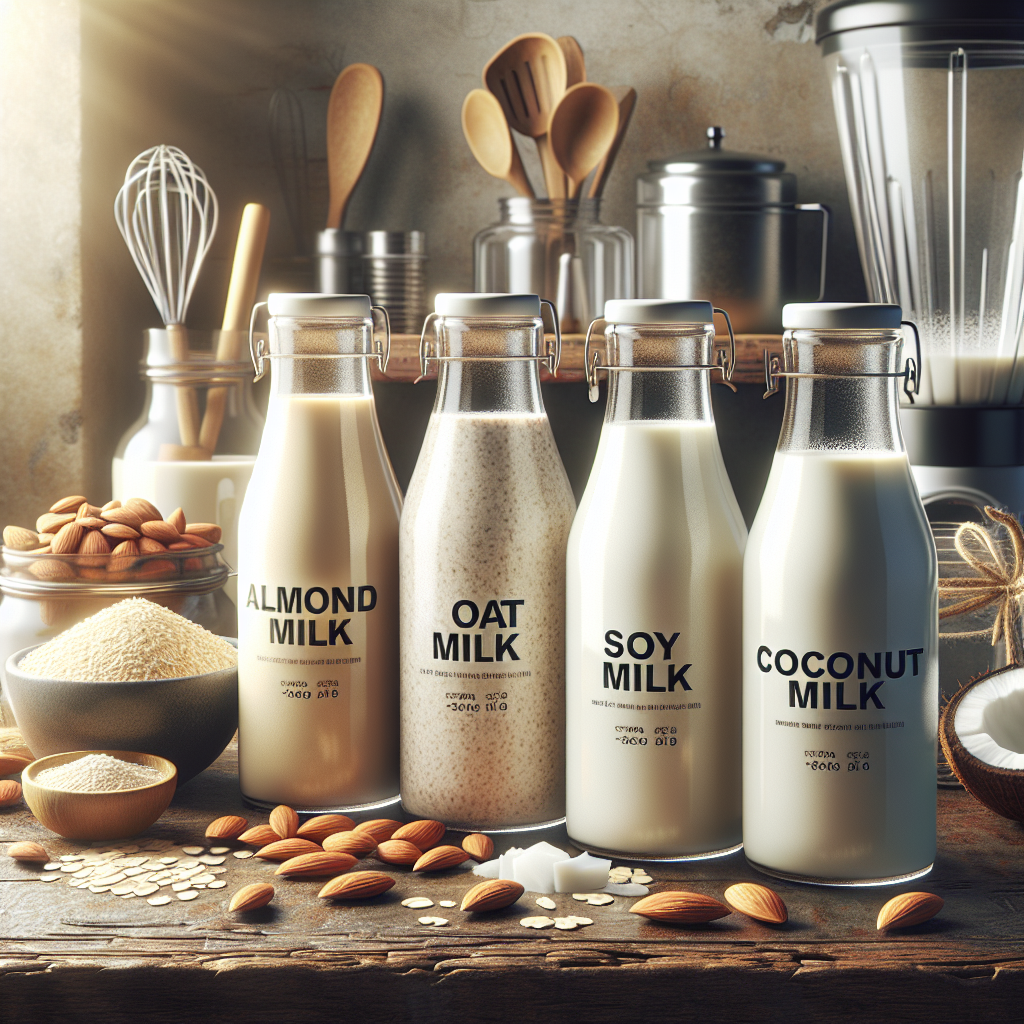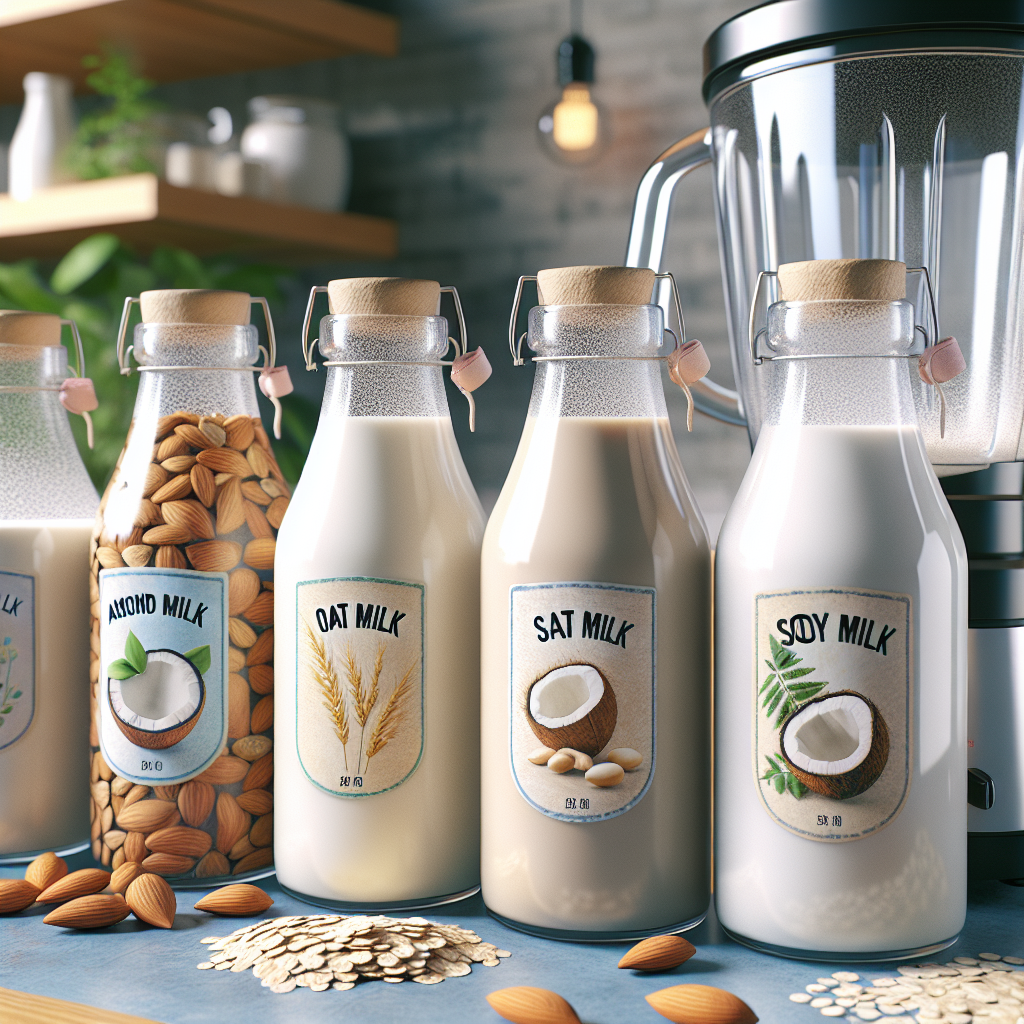In recent years, non-dairy milk has surged in popularity, becoming a staple in households around the globe. With increasing awareness about lactose intolerance, dietary preferences, and environmental concerns, many people are seeking alternatives to traditional cow's milk. Non-dairy milk offers a solution that is not only lactose-free but also often free from additives and preservatives, making it a healthier choice for many.
Non-dairy milk can be derived from various sources, including nuts, grains, and seeds. Each type brings its own unique flavor and nutritional benefits, allowing consumers to choose according to their taste and dietary needs. Some of the most popular options include almond milk, oat milk, soy milk, and coconut milk. These alternatives are not only delicious but also versatile, fitting seamlessly into a variety of recipes and beverages.
One of the most significant advantages of non-dairy milk is its eco-friendly nature. Producing plant-based milk typically requires fewer resources and generates less greenhouse gas emissions compared to dairy farming. This makes it a more sustainable option for those looking to reduce their environmental footprint.
With the help of our revolutionary MilkDepot.ca blender, you can easily create fresh, filtered non-dairy milk at home in less than 60 seconds. This powerful device not only saves you money but also gives you control over the ingredients, ensuring a pure and customizable milk experience.
Ready to make the switch? Get yours today!
Health Benefits of Non-Dairy Milk

One of the primary reasons many people are turning to non-dairy milk is for its numerous health benefits. Unlike traditional cow's milk, non-dairy alternatives typically contain no lactose, making them an excellent option for those who are lactose intolerant. This ensures that individuals with lactose intolerance can enjoy milk without experiencing digestive discomfort.
Many non-dairy milks are also lower in calories and fat compared to cow's milk, which can be beneficial for those looking to maintain or lose weight. For instance, almond milk and oat milk tend to have fewer calories, while still providing a creamy texture and pleasant taste.
In addition, non-dairy milks often come fortified with essential vitamins and minerals such as calcium, vitamin D, and vitamin B12, which are crucial for maintaining bone health and overall well-being. Soy milk, in particular, is known for its protein content, making it a good substitute for those seeking to increase their protein intake without consuming animal products.
Another benefit is that non-dairy milk can be free from hormones and antibiotics often found in cow's milk. This makes it a safer and more natural choice for health-conscious individuals. Certain non-dairy options, like flaxseed and hemp milk, also offer a good source of omega-3 fatty acids, which are beneficial for heart health.
Lastly, non-dairy milks are often easier on the digestive system, especially for those with sensitive stomachs or allergies. With so many varieties to choose from, everyone can find a non-dairy milk that suits their taste and dietary needs, contributing to a healthier lifestyle.
Popular Non-Dairy Milk Alternatives

As the demand for non-dairy milk continues to rise, numerous alternatives have gained popularity, each offering unique flavors and nutritional benefits. Here are some of the most popular non-dairy milk alternatives you should consider:
- Almond Milk: Made from ground almonds and water, almond milk is a favorite due to its light, slightly nutty flavor and low calorie content. It is also rich in vitamin E, which is beneficial for skin health.
- Soy Milk: Often hailed for its high protein content, soy milk offers a creamy texture similar to cow's milk. It is also packed with essential amino acids and is frequently fortified with calcium and vitamins A and D.
- Oat Milk: Known for its creamy consistency and naturally sweet taste, oat milk is a great choice for coffee and tea. It is high in fiber, particularly beta-glucan, which can help lower cholesterol levels.
- Coconut Milk: This tropical delight is made from the grated meat of coconuts and water. It is rich in medium-chain triglycerides (MCTs), which can provide a quick energy boost and support metabolism.
- Rice Milk: Made from milled rice and water, rice milk is one of the least allergenic non-dairy milks. It is naturally sweet and has a thin consistency, making it suitable for those with multiple food sensitivities.
- Hemp Milk: Derived from hemp seeds, hemp milk contains omega-3 and omega-6 fatty acids, making it a heart-healthy option. It also has a slightly nutty flavor and is often fortified with additional nutrients.
- Cashew Milk: This creamy and rich milk alternative is made from cashews and water. It is excellent for adding a thick, velvety texture to smoothies and soups, while also being a good source of magnesium.
Each of these non-dairy milk alternatives brings something unique to the table, whether it be nutritional benefits, flavor profiles, or versatility in recipes. Exploring these options can help you find the perfect non-dairy milk to complement your diet and lifestyle.
How to Make Non-Dairy Milk at Home

Creating your own non-dairy milk at home is not only cost-effective but also allows you to control the ingredients, ensuring a fresh and pure product. Here's a simple guide on how to make non-dairy milk at home using various nuts, grains, and seeds:
Ingredients:
- 1 cup of your choice of nuts, grains, or seeds (e.g., almonds, cashews, oats, rice, hemp seeds, etc.)
- 1300ml of filtered water
- Optional: Sweeteners (e.g., dates, maple syrup, honey) and flavorings (e.g., vanilla extract, cocoa powder, cinnamon)
Instructions:
- Soak (optional): Place the chosen nuts, grains, or seeds in a bowl and cover with water. Let them soak for at least 4-8 hours or overnight. This softens them and makes blending easier.
- Blend: Add the ingredients and flavor/sweetener if desired to the Milk Depot filter basket. Then add 1300ml of filtered water to your blender. Run the blending cycle and in less than a minute you’ll have fresh filtered, smooth and creamy milk to enjoy!
- Strain: Pour the blended mixture through a nut milk bag, cheesecloth, or fine mesh strainer into a large bowl. Squeeze or press to extract as much liquid as possible.
- Store: Transfer the homemade non-dairy milk to a clean glass jar or bottle and refrigerate. It will keep fresh for 3-5 days.
This method is versatile and can be adapted to make various types of non-dairy milk, allowing you to experiment with different ingredients and flavors. Homemade non-dairy milk is not only fresher but also free from additives and preservatives commonly found in store-bought versions.
Enjoy the satisfaction of making your own delicious and healthy non-dairy milk right in your kitchen!
Eco-Friendly and Cost-Effective Solutions

Switching to non-dairy milk isn't just a healthier choice for you and your family; it's also an environmentally friendly and cost-effective solution. Let's explore how making your own non-dairy milk can benefit both your wallet and the planet.
Environmental Impact:
Traditional dairy farming has a significant environmental footprint, contributing to greenhouse gas emissions, deforestation, and water pollution. On the other hand, plant-based milks require fewer resources to produce. For instance, almond milk and oat milk have a considerably lower carbon footprint compared to cow's milk. By making non-dairy milk at home, you further reduce the environmental impact by eliminating the need for packaging and transportation.
Cost Savings:
Store-bought non-dairy milk can be expensive, especially if you consume it regularly. However, making your own non-dairy milk can save you up to 90% of the cost. For example, a pound of almonds can make several quarts of almond milk, making it much cheaper than buying pre-packaged versions. Plus, homemade non-dairy milk is free from additives, preservatives, and unnecessary sugars, providing you with a purer product.
Reduced Waste:
By creating your own non-dairy milk, you significantly cut down on waste. Think of all the cartons and plastic bottles that you won't need to dispose of. In addition, the leftover pulp from making non-dairy milk can be repurposed into nutritious recipes like smoothies, baked goods, or even compost, making the process virtually waste-free.
Embracing homemade non-dairy milk is a smart choice for those looking to live more sustainably and economically. You get to enjoy fresh, customizable milk while supporting a healthier planet.
Choosing the Best Non-Dairy Milk
With a plethora of non-dairy milk options available, selecting the best one for your needs can be overwhelming. Each type of non-dairy milk offers unique benefits, flavors, and nutritional profiles. Here's a quick guide to help you make an informed choice.
Almond Milk: Known for its light, nutty flavor, almond milk is low in calories and rich in vitamin E. It's great for smoothies, cereals, and baking.
Oat Milk: Oat milk has a creamy texture and a slightly sweet taste, making it an excellent choice for coffee and tea. It's also high in fiber and often fortified with vitamins.
Soy Milk: Soy milk is one of the most nutritionally balanced non-dairy milks. It offers a good source of protein, comparable to cow's milk, and is versatile for cooking and drinking.
Coconut Milk: This milk has a rich, creamy texture and a distinct coconut flavor. It's perfect for tropical smoothies, curries, and desserts.
Rice Milk: Rice milk is lighter in consistency and has a naturally sweet taste. It's hypoallergenic and a good option for those with multiple food sensitivities.
Hemp Milk: Made from hemp seeds, this milk has a nutty flavor and is rich in omega-3 fatty acids. It's a fantastic addition to smoothies and cereals.
When choosing the best non-dairy milk for you, consider your dietary needs, flavor preferences, and how you plan to use it. Experiment with different types to find your favorite. With MilkDepot.ca's revolutionary milk-making blender, you can enjoy fresh, homemade non-dairy milk tailored to your taste in under 60 seconds. Get yours today!
